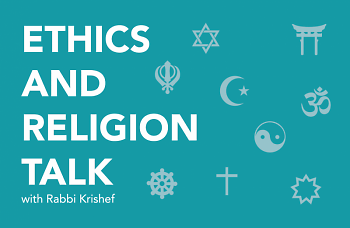Linda Knieriemen, Senior Pastor at First Presbyterian Church in Holland, responds:
“There are no restrictions in the use of pain medications in the Presbyterian Church (USA). In fact, I and most of my clergy colleagues will tell you that God’s creative force is in the development of pharmaceuticals.”
Fred Stella, the Pracharak (Outreach Minister) for the West Michigan Hindu Temple, responds:
“There are none. Some yogis who have practiced deep spiritual exercises are able to withstand everything from physical discomfort to extreme temperatures. But for most Hindus there is consensus that if pain can be removed we should allow that to happen.
“Once I was acting as a spiritual guide to a woman who was dying. She refused pain meds due to her misunderstanding of Hindu teachings. This decision turned her into quite a cantankerous person who did not resemble the sweet individual she was. Thankfully, she was persuaded to forego her nonsensical beliefs and receive the medicine she so sorely needed. The brief remainder of her life and the lives of her caregivers were immensely improved.”
The Reverend Colleen Squires, minister at All Souls Community Church of West Michigan, a Unitarian Universalist Congregation, responds:
“Unitarian Universalists do not impose any restrictions regarding pain management. We believe all medical decisions are best made by the patient in consultation with their health care provider.”
The Rev. Sandra Nikkel, head pastor of Conklin Reformed Church, responds:
“No! And although we believe that God can heal in supernatural ways and without the use of medicine, we also believe that God has scattered great talents and insights to doctors to heal and restore our health. Therefore, it is not due to lack of faith that many Christians use medications. It is because we believe that God rules over all creation and all creatures. God has scattered His gifts and talents and given great insights to those serving Him in the medical field. He has done this to help us live lives that are blessed and fruitful. Therefore, we take the medicines that are prescribed to us by doctors, thanking God for their knowledge and their dedication to their profession. We do it without fear, putting our trust not so much in the medicines and its power to heal, but in the God who heals and restores in many different ways. ‘For God has not given us a spirit of fear and timidity, but of power, love, and self-discipline.’ (2 Timothy 1:7)”
Father Kevin Niehoff, O.P., a Dominican priest who serves as Judicial Vicar, Diocese of Grand Rapids, responds:
“In 1995, the National Conference of Catholic Bishops, now the United States Conference of Catholic Bishops, addressed this issue in a document entitled, Ethical and Religious Directives for Catholic Health Care Services. The Bishops wrote then, and this is still the practice today:
“Patients should be kept as free of pain as possible so that they may die comfortably and with dignity and in the place where they wish to die. Since a person has the right to prepare for his or her death while fully conscious, he or she should not be deprived of consciousness without a compelling reason. Medicines capable of alleviating or suppressing pain may be given to a dying person, even if this therapy may indirectly shorten the person's life so long as the intent is not to hasten death. Patients experiencing suffering that cannot be alleviated should be helped to appreciate the Christian understanding of redemptive suffering (n. 61).”
My response:
The only restriction on the use of pain medications is on the potential “double effect” of the pain medication hastening death, for example by depressing respiration. Typically, if the intention of the medication is pain management and the chance of hastening death is less than 50%, then there is no restriction on its use. However, if the pain medication is more likely than not to hasten death (greater than a 50% chance), its use would be circumscribed. And all the more so, if the pain medication is use to intentionally hasten death, it would not be allowable in Jewish ethics.
The question of pain management is an important part of end-of-life healthcare planning. In the final stages of one’s life, there is often a tradeoff between conscious alertness and the complete alleviation of pain. My tradition and most others as well believe that a person has the autonomy to choose how much pain they are willing to accept. Some people will choose not to tolerate any pain; others will choose to tolerate some pain in exchange for the ability to be mentally present and aware as they approach death. Palliative care physicians and hospice care nurses are comfortable having this discussion with their patients in advance so when the time of death approaches, they and their families will know what their options are.
This column answers questions of Ethics and Religion by submitting them to a multi-faith panel of spiritual leaders in the Grand Rapids area. We’d love to hear about the ordinary ethical questions that come up in the course of your day as well as any questions of religion that you’ve wondered about. Tell us how you resolved an ethical dilemma and see how members of the Ethics and Religion Talk panel would have handled the same situation. Please send your questions to [email protected].
The Rapidian, a program of the 501(c)3 nonprofit Community Media Center, relies on the community’s support to help cover the cost of training reporters and publishing content.
We need your help.
If each of our readers and content creators who values this community platform help support its creation and maintenance, The Rapidian can continue to educate and facilitate a conversation around issues for years to come.
Please support The Rapidian and make a contribution today.
